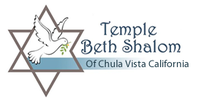If your congregation continues to meet, you could be done for good. If you go to your synagogue, if you go to your church and attempt to hold services, after having been told so often not to, our enforcement agents will have no choice, but to shut down those services,” “I don’t say that with any joy. It’s the last thing I would like to do, because I understand how important people’s faiths are to them, and we need our faith in this time of crisis. But we do not need gatherings that will endanger people.[1]
One would have gotten the distinct impression that churches and synagogues were not cooperating with the need for social-distancing. Yet, this has not been the case. Across the religious divide, synagogues and churches both committed to closing their services in the interest of halting the pandemic. De Blasio’s use of threats has made everyone more nervous than before—and in do so has exacerbated tensions in an anxious community.
The Mayor came across as a bully. But given the stressful state of our nation, today, it would be easy for us to overlook his remark; Blasio probably spoke off-the-cuff. Still, he really needs to clarify what exactly he meant and that under no circumstances would he seek to “permanently” close down places of worship. It would be prudent for him to stress the rules apply to everybody and that he has no animus toward any place of worship.
I found the Mayor’s response provocative for other reasons. Yes, we understand that the Mayor want all places of worship to observe the social-distancing so we might have a better chance at containing the pandemic. The fact he included only synagogues and churches came across as being somewhat discriminatory. What about mosques? What about Ashrams, or other religious communities? This year, the month of Ramadan will begin on Thursday, April 23 and it will last to Saturday, May 23. Will they also subject to this new decree?
Time will tell.
Making threats sound more like religious discrimination. What legal authority does a government have to permanently shut down worship services? We know the answer: none. The Constitution makes it questionable whether one can shut down private property that is being held for a religious service—even in the face of a health crisis. By coming out strongly against the synagogues and churches, he inadvertently sparked a national debate over the separation of Church and State and the fundamental First Amendment, which guarantees Americans the right to free exercise of worship.
As Kristen Waggoner observed in her op ed article in the New York Daily News:
- The Constitution requires officials to exercise great caution when they attempt to regulate or restrict these freedoms. Our laws ensure that governments only limit religious free exercise for a “compelling interest” of the “highest order,” and even then, only if they do it with the “least restrictive means.” That means, even if the government is taking strong action for an exceptionally important reason, it cannot restrict more religious exercise than necessary to achieve its compelling goal.[2]
It would be interesting to see how such a case might unfold.
Oddly, certain medieval attitudes might have some practical use today. The medievalists did whatever they could to isolate plague victims as a public safety precaution. Not only were those infected by the plague quarantined, but so were their contacts, e.g., family members and friends—anyone who got in contact with them. In fact, the medievalists employed “medical police” to enforce the quarantine regulations and restrictions on movement. As you might expect, the authorities who enacted these rules received considerable criticism. But in the end, this proved to be successful way of constricting the spread of contagion.[4]
One last note:
The Mayor should have urged churches, synagogues, mosques, ashrams, or any place of worship to follow the government guidance against group gatherings; had he urged them to utilize zoom or Facebook Live, and YouTube, I think his point would have been no less persuasive. Using this new medium of communication has been very well received so far at the synagogue. I think we will continue using it long after the pandemic is over.
[1] https://politicodailynews.com/de-blasio-threatens-to-permanently-shutter-churches-that-continue-to-hold-worship-services-2/
[2] https://www.nydailynews.com/opinion/ny-oped-sorry-cant-close-churches-20200331-itiui23k5fbivcrzeavsfb5a4a-story.html
[3] This phrase is a paraphrasing of Justice Oliver Wendell Holmes came from the cause celeb, United States Supreme Court case Schenck v. United States in 1919, which held that the defendant's speech in opposition to the draft during World War I was not protected free speech under the First Amendment of the United States Constitution
[4] Ellen L. Idler, Religion as a Social Determinant of Public Health (New York: Oxford University, 2014), p.ge 410

 RSS Feed
RSS Feed
